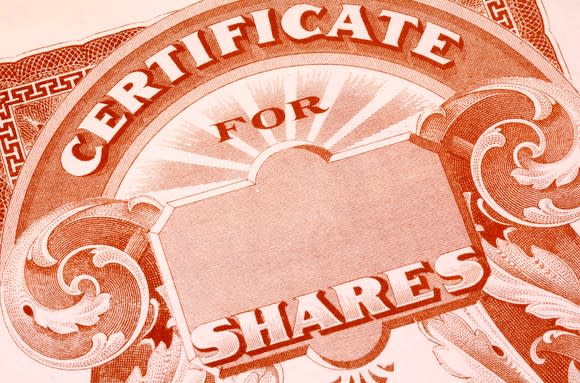Meet the Newest Marijuana Stock Craze: Spinoffs
In less than three months, history will be made by our neighbor to the north. Following the passage of the Cannabis Act on June 19, recreational marijuana will officially become legal for adults to purchase beginning on Oct. 17. And with the waving of the green flag, up to $5 billion in annual sales could flood into the Canadian legal cannabis industry.
As you may rightly have imagined, with dollar signs this large, expectations from Wall Street and retail investors are high (pun fully intended). With demand potentially outpacing cannabis supply over the first couple of quarters as growers look to bring new greenhouses online, the ball will certainly be in pot growers' courts.

Image source: Getty Images.
Meet the newest trend in the weed industry
But growing marijuana is far from the only thing Canadian pot stocks have to concern themselves with. They've had to balance their focus on capacity expansion, financing, building their brand, securing domestic and international partnerships, laying the groundwork for their distribution channels, broadening their product line beyond just dried cannabis to avoid the potential for commoditization, and so much more. This flurry of activity, now that the Cannabis Act has passed, has led to what could be the next marijuana craze: spinoffs.
Typically, when a company spins off assets to form a new company, it does so with two purposes in mind. First, the spun-off assets aren't considered vital to the company's ongoing business focus, so it becomes a matter of either selling those assets or spinning them off into a new entity.
Second, when a business becomes larger and more complicated, management might believe that investors are having difficulty understanding the underlying value of all components of a business put together. By spinning off one or more operations, management usually believes it can unlock value and make understanding a business much easier.
My personal suspicion is that marijuana stock spinoffs likely fall into the latter category, with growers beginning to move away from a reliance on dried cannabis and now focusing on cannabis alternatives, international expansion, and a host of other product and supply partnerships, which can make these businesses tougher to properly evaluate.

Image source: Getty Images.
Three spinoff announcements in a stretch of only nine days
Over a nine-day stretch this month, investors have witnessed three Canadian pot stocks announce their intention to spin off assets.
It all began with small-cap Sunniva (NASDAQOTH: SNNVF), which, on July 10, announced its intention to spin off its Canadian assets and list them on the Nasdaq in the United States in order to "unlock shareholder value." The Canadian assets include the company's flagship Sunniva Canada Campus, a 740,000-square-foot facility that is generating the cumulative 90,000 kilograms of cannabis that Canopy Growth Corporation has agreed to purchase over the next two years.
Meanwhile, Sunniva's U.S. assets, which include its Sunniva California Campus, a 489,000-square-foot greenhouse in Cathedral City, Calif., as well as an extraction facility, will remain listed on the Canadian exchange.
Then, eight days later, Aurora Cannabis (NASDAQOTH: ACBFF), which has angled itself to become Canada's leading producer with over 570,000 kilograms of annual production upon closing of the MedReleaf purchase, announced that it, too, was spinning off assets.

Image source: Getty Images.
Per the press release, Aurora Cannabis shareholders voted to spin off Australis Capital, a subsidiary that currently is an investment arm for cannabis-focused companies. Aurora shareholders will receive common stock in Australis pursuant to its spinoff, with Aurora Cannabis retaining back-in warrants that, with regulatory approval, would allow the company to acquire an interest in Australis. Following the spinoff, Australis will primarily focus on the U.S. cannabis and real estate industry, providing financing solutions in an industry where obtaining capital can be a challenge.
Finally, a day later, on July 19, The Green Organic Dutchman (NASDAQOTH: TGODF) announced plans to spin off a company that'll be known as TGOD Acquisitions (TGOD stands for "The Green Organic Dutchman"). Each shareholder will receive a warrant to acquire a TGOD Acquisitions Unit for $0.50 Canadian ($0.38), with each unit consisting of a share plus an additional warrant. The press release notes that one warrant will be issued for every 6.67 shares of The Green Organic Dutchman owned, as of the record date.
What will TGOD Acquisitions consist of, you ask? That's not entirely clear at this point. It'll certainly contain noncore assets from a variety of industry standpoints. Though it'll be funded with CA$25 million in working capital from TGOD, investors may have to wait a few weeks or months until the prospectus is released to get a clearer picture of what assets are being spun off.

Image source: Getty Images.
Questions aplenty
Of course, what investors want to know is if these spinoffs will actually help unlock shareholder value or not. Historically, spinoffs do lead to market-topping returns over the long run. Unfortunately, with no precedent to a legal cannabis industry in any industrialized country, there is no such thing as a "long term" to examine. Thus, it's impossible to tell if these spinoffs will really create value for existing marijuana stock shareholders.
The bigger concern is what's going to happen with Canada's legal weed industry once Oct. 17 hits. While a supply shortage would be an initial positive for companies like Sunniva, Aurora Cannabis, and The Green Organic Dutchman (since it would buoy dried cannabis prices and margins), what examples we do have from the recreational markets in the states of Colorado, Washington, and Oregon suggest that commoditization of dried cannabis is just a few short quarters away. Will these growers be positioned to survive a substantial drop in per-gram cannabis prices? That remains to be seen.
Investors also don't know if buying into aggressive marijuana stock valuations will pay off over the long run. Even with rapidly rising sales, capital-raising activity via bought-deal offerings has ballooned the outstanding-share count for many pot stocks. As the number of outstanding shares increases, it becomes incrementally harder for these companies to produce a meaningful per-share profit. Translation: Marijuana stocks have a lot to prove from a fundamental and value standpoint.
As has been my contention for years, your best bet is to hang out on the sidelines until the industry matures a bit and the weaker players are shuffled to the back of the line.
More From The Motley Fool
Sean Williams has no position in any of the stocks mentioned. The Motley Fool has no position in any of the stocks mentioned. The Motley Fool has a disclosure policy.

 Yahoo Finance
Yahoo Finance 